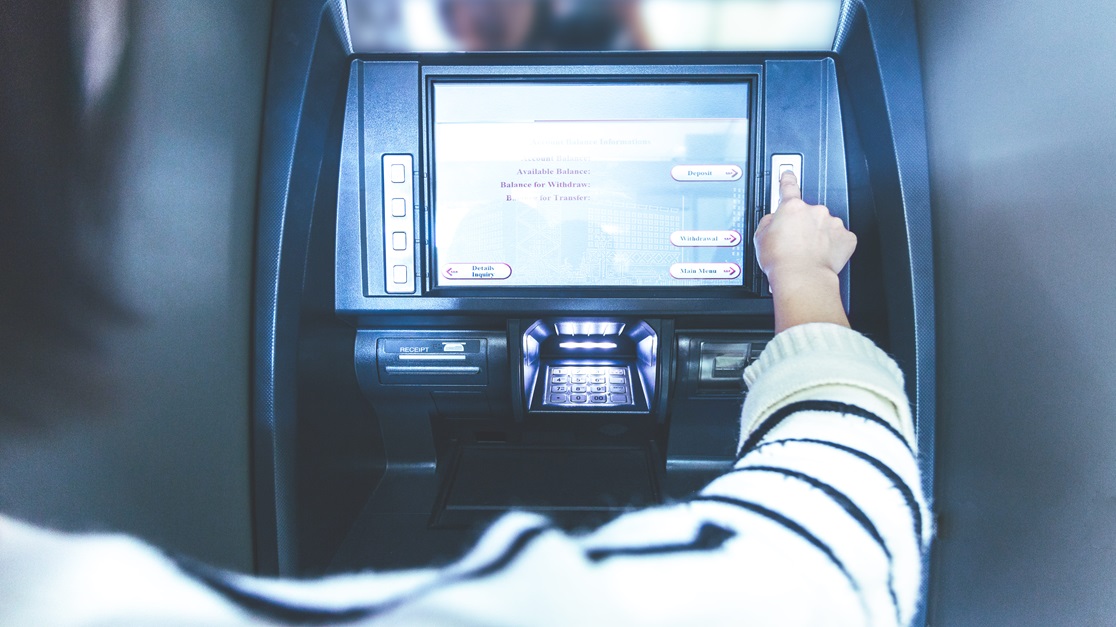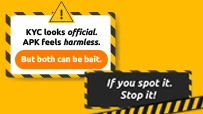How to Resolve Disputes Over ATM Withdrawals: What You Need to Know
Disclaimer: Ujjivan Small Finance Bank is not responsible for the accuracy of the information provided herein. The blog is written for generic information.
July 05, 2025

Have you ever experienced a situation where money was deducted from your bank account, but you did not receive the cash from the ATM? It can be frustrating and confusing, leaving you wondering what steps to take next. In fact, disputes over ATM withdrawals can arise from various issues, each potentially leading to confusion or financial loss. In this article, we will guide you on how to resolve ATM withdrawal disputes and ensure secure transactions.
Types of ATM Withdrawal Disputes
Here are the primary types of ATM withdrawal disputes that might occur:
1. Cash Dispensing Errors
- Incorrect Amount Dispensed: The ATM may dispense less cash than requested or none at all, despite the transaction being approved. This often leads to disputes over the amount debited from the account.
- No Cash Dispensed: If the ATM fails to release cash but deducts the amount from the account, customers may need to contact their bank for resolution.
2. Technical Issues
- ATM Out of Service: Machines may be temporarily unavailable due to maintenance or technical failures, causing transactions to be declined or interrupted.
- Network Connectivity Problems: Disruptions in network communication can lead to transaction failures, resulting in confusion about whether a withdrawal was successful.
3. Insufficient Funds
Customers may attempt to withdraw more than what is available in their account, leading to declined transactions and potential disputes over fees or penalties.
4. Card-Related Issues
- Blocked Cards: Cards may be blocked due to fraud prevention measures or exceeding daily withdrawal limits, causing frustration and disputes when attempting to access funds.
- Incorrect PIN Entry: Entering an incorrect PIN multiple times can result in a card being blocked, complicating access to funds and leading to disputes regarding access rights.
5. Fraudulent Activities
- Card Skimming: Criminals may use devices that capture card information and PINs without the user’s knowledge, leading to unauthorised withdrawals and disputes over fraudulent transactions.
- ATM Malware Attacks: Malicious software can manipulate ATM operations, allowing criminals to withdraw cash without proper authorisation, resulting in disputes over stolen funds.
6. Withdrawal Limit Disputes
- Customers may dispute limits imposed by their bank on daily withdrawals, especially if they believe these limits were not clearly communicated or are excessively restrictive.
7. Transaction Processing Errors
- Software glitches can lead to double charges or incomplete transactions, causing discrepancies that require resolution with the bank.
A Step-by-Step Process To Resolving ATM Withdrawal Disputes
Resolving ATM withdrawal disputes requires prompt bank complaints and thorough documentation. Follow these steps to navigate the process smoothly:
Step 1: Retain Your Transaction Receipt
When you encounter an ATM withdrawal issue, it is crucial to retain your transaction receipt as proof of the discrepancy. The receipt contains essential information such as the transaction date, time, location, and transaction reference number. This documentation will serve as evidence while resolving the dispute with your bank.
Step 2: Contact Your Bank Immediately
As soon as you notice a discrepancy in your ATM withdrawal, raise a bank complaint by contacting your bank's customer support helpline or visit the nearest branch. Inform them about the issue and provide all the relevant details, including the transaction reference number from your receipt. You can call Ujjivan’s Toll Free Number: 1800 208 2121.
Step 3: Lodge a Formal Complaint
If your bank fails to resolve the dispute within a reasonable time frame or provides unsatisfactory solutions, consider lodging a formal bank complaint with them. Most banks have a dedicated grievance redressal mechanism in place to handle customer complaints effectively.
To lodge a complaint:
- Write a formal letter addressing it to the branch manager or head of customer service.
- Clearly state the details of the dispute, including dates, locations, and amounts involved.
- Attach copies of your transaction receipt, account statement, and any other relevant supporting documents.
- Keep a copy of the bank complaint letter for your records.
Step 4: Escalate the Matter
If you do not receive a satisfactory resolution to your bank complaint, escalate the matter to higher authorities within the bank. This can be done by writing to the Regional Manager or even the Banking Ombudsman, depending on the severity of the dispute. The Banking Ombudsman is an independent authority appointed by the Reserve Bank of India (RBI) to resolve customer complaints regarding banking services.
Consult your bank's website or speak to a customer service representative for information on how to escalate your bank complaint further.
Final Thoughts
In conclusion, resolving ATM withdrawal disputes requires timely action, effective communication with your bank, and thorough documentation. By retaining your transaction receipts, contacting your bank promptly, lodging formal complaints if necessary, and escalating issues appropriately, you can increase your chances of getting a satisfactory resolution.
Remember to follow precautions to ensure secure transactions and minimise the risk of ATM-related issues. Choose ATMs from trusted sources, protect your PIN, regularly check your account statements, enable transaction alerts, and keep emergency contact numbers handy.
Now enjoy easy banking with Ujjivan Small Finance Bank. Save more with our high-interest Savings Account and Deposit products. Need cash for your business or personal needs? Apply for MSME Loans or Micro Loans with us – we offer competitive rates and quick disbursal. We also offer vehicle loans and home loans tailored for your unique requirements. Experience a smooth banking journey with Ujjivan SFB!
Disclaimer:
The contents herein are only for informational purposes and generic in nature. The content does not amount to an offer, invitation or solicitation of any kind to buy or sell, and are not intended to create any legal rights or obligations. This information is subject to updation, completion, amendment and verification without notice. The contents herein are also subject to other product-specific terms and conditions, as well as any applicable third-party terms and conditions, for which Ujjivan Small Finance Bank assumes no responsibility or liability.
Nothing contained herein is intended to constitute financial, investment, legal, tax, or any other professional advice or opinion. Please obtain professional advice before making investment or any other decisions. Any investment decisions that may be made by the you shall be at your own sole discretion, independent analysis and evaluation of the risks involved. The use of any information set out in this document is entirely at the user’s own risk. Ujjivan Small Finance Bank Limited makes no representation or warranty, express or implied, as to the accuracy and completeness for any information herein. The Bank disclaims any and all liability for any loss or damage (direct, indirect, consequential, or otherwise) incurred by you due to use of or due to investment, product application decisions made by you on the basis of the contents herein. While the information is prepared in good faith from sources deemed reliable (including public sources), the Bank disclaims any liability with respect to accuracy of information or any error or omission or any loss or damage incurred by anyone in reliance on the contents herein, in any manner whatsoever.
To know more about Ujjivan Small Finance Bank Products Visit:"https://www.ujjivansfb.in"
All intellectual property rights, including copyrights, trademarks, and other proprietary rights, pertaining to the content and materials displayed herein, belong
to Ujjivan Small Finance Bank Limited or its licensors. Unauthorised use or misuse of any intellectual property, or other content displayed herein is strictly prohibited and the same is not intended for distribution to, or use by, any person in any jurisdiction where such distribution or use would (by reason of that person’s nationality, residence or otherwise) be contrary to law or registration or would subject Ujjivan Small Finance Bank Limited or its affiliates to any licensing or registration requirements.
FAQs
1. What should I do if an ATM debits my account but does not dispense cash?
Retain your transaction receipt, contact your bank immediately, and provide them with all relevant details. Lodge a formal bank complaint if the issue remains unresolved.
2. Can I dispute an ATM withdrawal made from another bank?
Yes, you can dispute an ATM withdrawal made from another bank by following the same steps mentioned earlier.
3. How long does it take to resolve ATM withdrawal disputes ?
The resolution time for ATM withdrawal disputes may vary depending on the complexity of the dispute and the efficiency of your bank's internal processes. However, most disputes are resolved within a few days to a couple of weeks.
4. Will I be held liable for unauthorised transactions during an ATM withdrawal dispute?
As per RBI guidelines, you will not be held liable for unauthorised transactions reported within a specific time frame (usually 3 working days).
5. Can I file a complaint directly with the Reserve Bank of India for an ATM withdrawal dispute?
It is recommended to follow your bank's complaint redressal mechanism first. If you do not receive a satisfactory resolution, you can escalate the matter to the Banking Ombudsman appointed by the RBI.
6. Are there any charges for lodging a complaint regarding an ATM withdrawal dispute?
Banks typically do not charge any fees for lodging a complaint regarding an ATM withdrawal dispute.
7. Is it necessary to inform the police about an ATM withdrawal dispute?
While it may not be necessary to involve the police in every ATM withdrawal dispute, it is advisable to do so if you suspect any fraudulent activity or if there is evidence of tampering with the ATM.
8. Can I take legal action if my ATM withdrawal dispute is not resolved satisfactorily?
If all other avenues fail to provide a satisfactory resolution, you can consult a legal professional to explore further options based on the specific circumstances of your case.
9. How can I follow 'secure transactions' at the ATM machine?
You can undertake secure transactions at the ATM machine by choosing ATMs that are well-lit and protecting your PIN by shielding it when using the keypad.
Latest Blogs

Annual Information Statement (AIS): A Complete Guide for Stress-Free ITR Filing
India’s tax season is in its final stretch.

ITR-1 (Sahaj) Restrictions: Income Sources Not Allowed & Filing Rules
With just a few days left before the 15 September 2025 deadline for filing Income Tax Returns (ITRs) for Assessment Year (AY) 2025-26, many taxpayers are rushing to submit their forms online.

GST Rate Cut on Electronics: What It Means for Consumers and Retailers
India’s Goods and Services Tax (GST) system has entered a new era with the rollout of GST 2.0, effective from September 22, 2025.

Banking Safety Guide: How to Avoid QR Code Frauds While Making Payments
India’s love for QR code payments has made transactions lightning-fast, but also opened a new front for cybercriminals.

Scam Alert! Phishing, Vishing, and Smishing Can Drain Out Your Finances
Digital banking in India has transformed the way we manage money.



